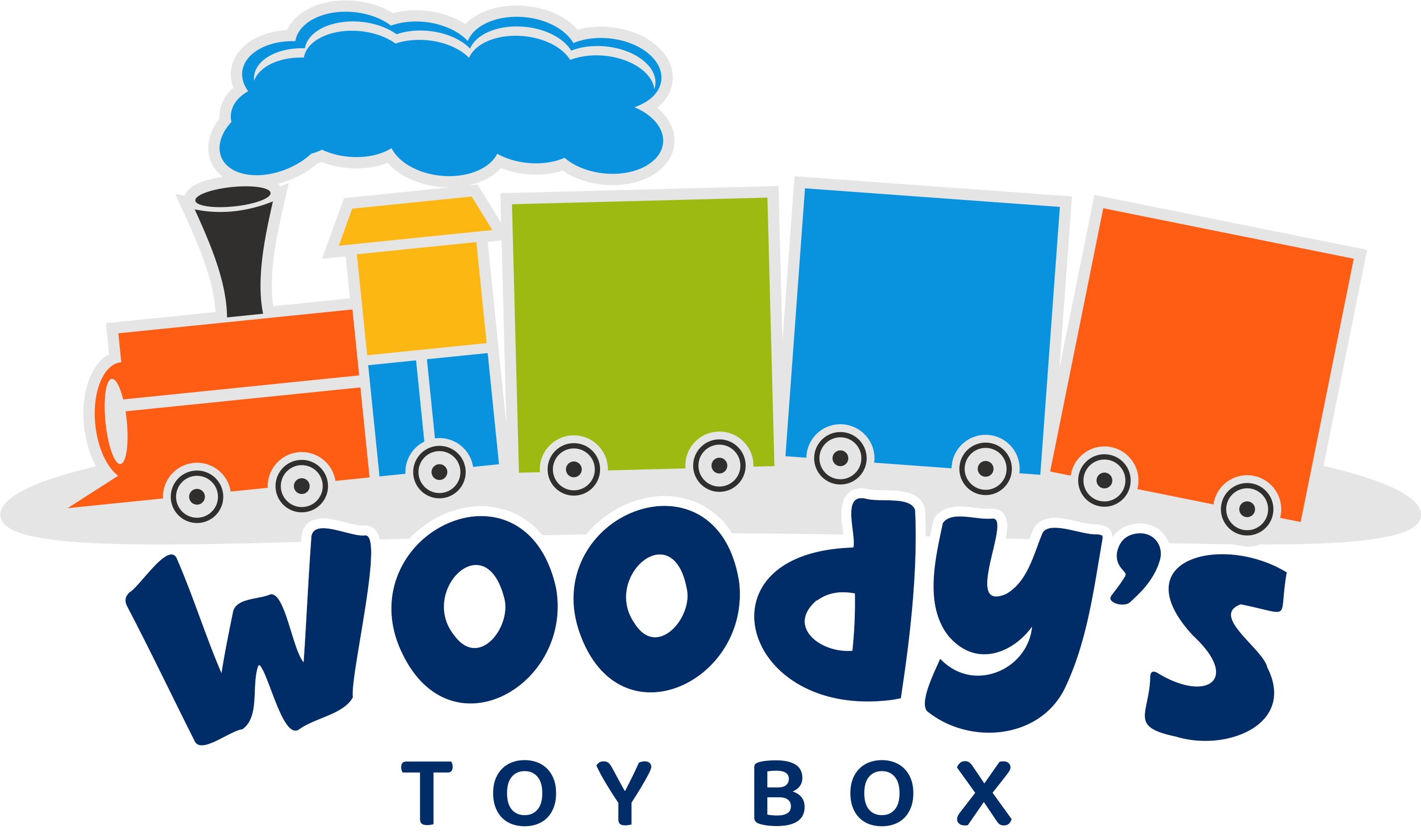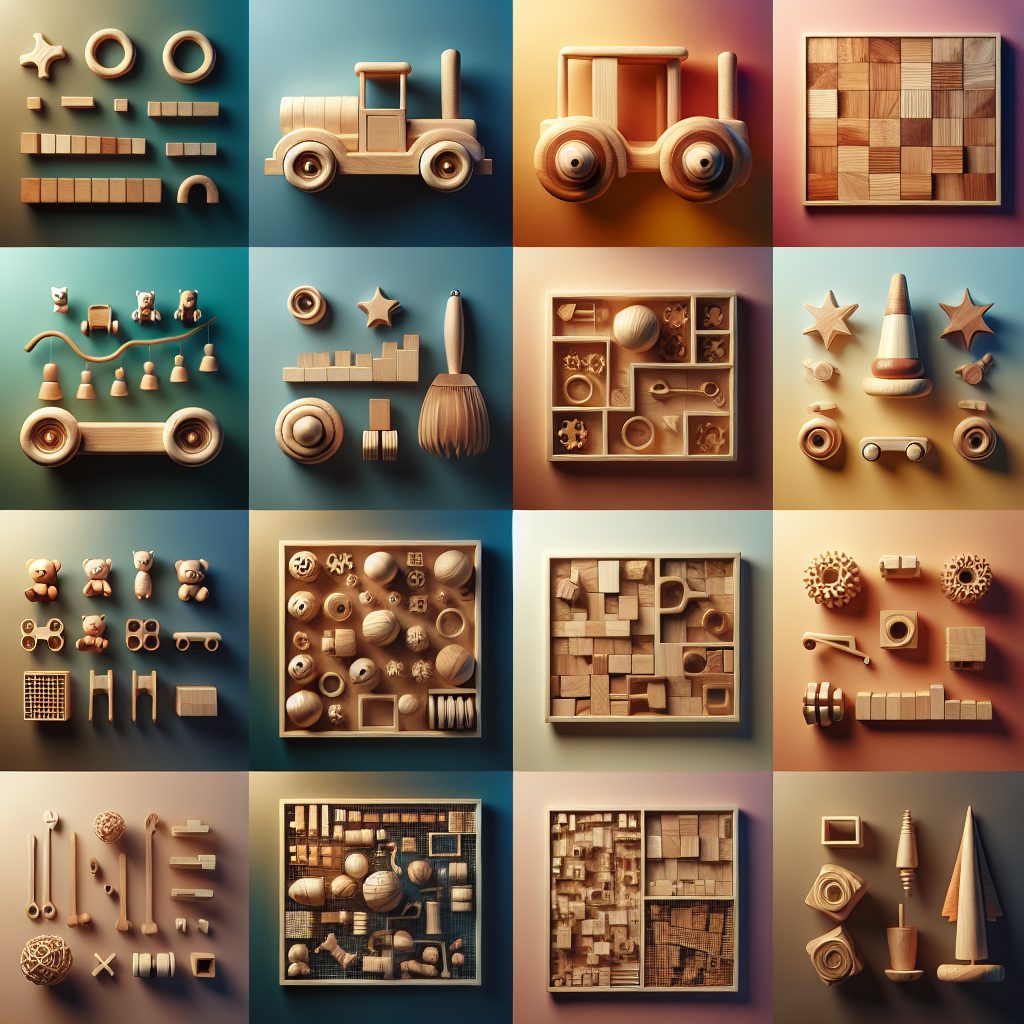Wooden toys have long been cherished for their timeless appeal and ability to captivate young minds. From intricately designed puzzles to beautifully crafted building blocks, these toys not only provide endless hours of entertainment but also play a crucial role in cognitive development. One unique feature of wooden toys is their tactile nature, which allows children to explore different textures and shapes, stimulating their senses and enhancing their motor skills. Additionally, these toys promote imaginative play, encouraging children to think critically, problem-solve, and develop their creativity.
Now that we have explored the numerous benefits of wooden toys for cognitive development, let’s delve into the key takeaways that will be discussed in this article. In the following sections, we will explore the different age groups and highlight specific wooden toys that are most suitable for each stage. From infants to toddlers to preschoolers, we will discuss the specific impacts that wooden toys have on their cognitive abilities, as well as the unique features that make these toys highly engaging and educational. So, whether you are a parent, educator, or caregiver, stay tuned to discover how wooden toys can make a significant difference in the cognitive development of children at various ages.
Key Takeaways
1. Wooden toys promote cognitive development in children of various ages through tactile exploration, problem-solving, and imaginative play. These types of toys engage multiple senses, enhancing children’s understanding of the world around them.
2. For infants and toddlers, wooden toys such as rattles and simple shape sorters are particularly beneficial for developing hand-eye coordination, fine motor skills, and an understanding of cause and effect. These toys also encourage sensory exploration and early problem-solving abilities.
3. As children progress to preschool and early school-age, advanced wooden toys like puzzles, blocks, and construction sets promote creativity, spatial reasoning, and logical thinking. These toys offer open-ended play opportunities, allowing children to experiment, problem-solve, and express their unique ideas.
4. Wooden toys can have a positive impact on children’s social skills by facilitating cooperative play and encouraging communication and negotiation. Board games and pretend play sets, such as kitchens or shops, foster collaboration, turn-taking, and imaginative storytelling, helping children develop essential social and emotional abilities.
5. While electronic toys may be popular, wooden toys offer numerous advantages by providing a screen-free alternative that stimulates children’s imagination, creativity, and critical thinking skills. With their durability and ecological sustainability, wooden toys also promote a more environmentally conscious approach to play and consumerism.
What are the Best Wooden Toys for Cognitive Development in Various Ages?
The Importance of Wooden Toys for Cognitive Development
Wooden toys have long been recognized for their positive impact on cognitive development in children of all ages. Unlike plastic toys that are often flashy and loud, wooden toys encourage open-ended play and stimulate a child’s imagination. These timeless toys provide numerous benefits, such as promoting problem-solving skills, enhancing creativity, and improving fine motor skills.
Wooden Toys for Infants (0-12 Months)
During the first year of life, infants rapidly develop cognitive abilities. Introducing appropriate wooden toys can significantly contribute to their cognitive growth. Toys such as wooden blocks and shape sorters help infants develop hand-eye coordination, spatial awareness, and problem-solving skills. Simple wooden rattles and teething toys also aid in sensory exploration and provide tactile stimulation.
Wooden Toys for Toddlers (1-3 Years)
Toddlers are curious little explorers who love to engage in imaginative play. Wooden toys that encourage pretend play, such as play kitchens, tool sets, and dollhouses, stimulate their cognitive development. Additionally, puzzles, stackable toys, and matching games promote problem-solving and shape recognition skills. Wooden musical instruments and building blocks help strengthen fine motor skills and foster creativity.
Wooden Toys for Preschoolers (3-5 Years)
Preschoolers are ready to dive deeper into cognitive development, building upon the skills they’ve acquired. Advanced puzzles, memory games, and educational board games with wooden components enhance critical thinking, memory, and social skills. Construction sets, such as wooden train tracks and building blocks with connectors, promote spatial awareness, hand-eye coordination, and logical thinking.
Wooden Toys for School-Aged Children (6+ Years)
As children enter school, their cognitive abilities expand, requiring toys that challenge their growing minds. Strategy board games, brain teasers, and educational wooden building kits develop problem-solving, logical reasoning, and concentration skills. Complex construction sets, such as models and architectural kits, encourage creative thinking and enhance fine motor skills.
Numbered Guides for Choosing Wooden Toys for Cognitive Development
1. Consider the age appropriateness: Choose toys that match the child’s developmental stage and abilities.
2. Engage multiple senses: Opt for toys that offer tactile, visual, and auditory stimulation to enhance cognitive growth.
3. Promote open-ended play: Select toys that can be used in various ways, promoting imagination and creativity.
4. Focus on skill development: Look for toys that target specific areas, such as fine motor skills, problem-solving, or memory.
5. Prioritize quality and safety: Ensure the wooden toys are made from non-toxic materials and are durable for long-lasting play.
Conclusion
Wooden toys play a vital role in fostering cognitive development in children of all ages. By providing a screen-free and imagination-driven play experience, they contribute to the growth of various cognitive skills. From infants to school-aged children, there is a wide array of wooden toys available, each catering to specific age groups and developmental milestones. Embrace the timelessness and benefits of wooden toys to support your child’s cognitive development.
Frequently Asked Questions
1. Are wooden toys better for cognitive development than plastic toys?
Yes, wooden toys are generally better for cognitive development than plastic toys. Wooden toys offer a more sensory experience, allowing children to touch and feel different textures. They also require more imagination and creativity, as they don’t come with pre-programmed functionalities like many plastic toys do.
2. At what age can children start playing with wooden toys?
Children can start playing with wooden toys as early as six months old. At this age, they can interact with simple wooden toys like rattles or blocks. As they grow older, they can engage with more complex wooden toys that challenge their cognitive abilities.
3. Can wooden toys help improve problem-solving skills?
Yes, wooden toys are great for developing problem-solving skills. They often require children to figure out how different pieces fit together or how to manipulate elements to achieve a desired outcome. This process helps them build problem-solving abilities and critical thinking skills.
4. Are wooden puzzles beneficial for cognitive development?
Absolutely! Wooden puzzles are an excellent tool for cognitive development. They require children to analyze shapes, colors, and patterns, which promote spatial awareness and logical thinking. They also enhance fine motor skills and hand-eye coordination.
5. Can wooden toys help enhance creativity?
Yes, wooden toys can definitely enhance creativity in children. Unlike many plastic toys that have predetermined functions, wooden toys encourage open-ended play and imagination. Children can use them in various ways, allowing them to create their own narratives and scenarios.
6. What types of wooden toys are suitable for older children?
For older children, building sets, construction toys, and advanced puzzle sets are great options. These toys challenge their problem-solving abilities and spatial skills. Additionally, board games made of wood can help develop strategic thinking and social interaction.
7. Are there any safety concerns with wooden toys?
Wooden toys are generally safer than plastic toys as they are less likely to contain harmful chemicals. However, you should always check for any small parts that could pose a choking hazard, and ensure that the wooden toys are made from non-toxic materials and have smooth edges to prevent any injuries.
8. How can wooden toys support language development?
Wooden toys, especially those that involve pretend play like kitchen sets or dolls, can support language development. Children often engage in role-playing scenarios, which helps them expand their vocabulary and develop social interaction skills through storytelling.
9. Can wooden toys help with fine motor skills?
Yes, wooden toys are excellent for fine motor skill development. Playing with wooden toys like stacking blocks or sorting toys requires children to manipulate small objects, improving their hand-eye coordination, finger dexterity, and muscle control.
10. Are there any eco-friendly aspects to wooden toys?
Yes, there are eco-friendly aspects to wooden toys. Unlike many plastic toys, wooden toys are often made from sustainable materials, such as bamboo or responsibly sourced wood. They also have a longer lifespan and are biodegradable, reducing their impact on the environment.
Final Thoughts
Wooden toys provide significant benefits for cognitive development across various ages. The tactile experience, open-ended play, and need for imagination make them highly effective tools for enhancing problem-solving skills, creativity, and fine motor skills. Whether it’s puzzles, building sets, or pretend play, wooden toys offer children engaging and educational experiences that promote cognitive growth.
Furthermore, by opting for wooden toys, we prioritize environmental sustainability. Choosing toys made from sustainable materials and promoting conscious consumption not only benefits our children’s development but also contributes to a healthier planet. Embracing the timeless charm of wooden toys can have a lasting positive impact on both our little ones and the world they inherit.

